How many times have you given your credit card information or your email to complete strangers on the road? Are you willing to do the same on the internet? You are most likely to exchange emails with people you trust. This is what some of the important legal pages do. Build trust.
If you run a website, your main goal is to convert casual readers into returning visitors and customers. Subscription forms, freebies, comments, shares on any website requires an email.
A visitor will only opt in if they feel safe and trust the website. So, how do you ensure your website is a safe place that your audience can trust? By adding legal pages for websites.
Regardless of whether you run ads, have a subscription form or not, you are advised to have these important legal pages. This is because you are collecting information in other ways on your website.
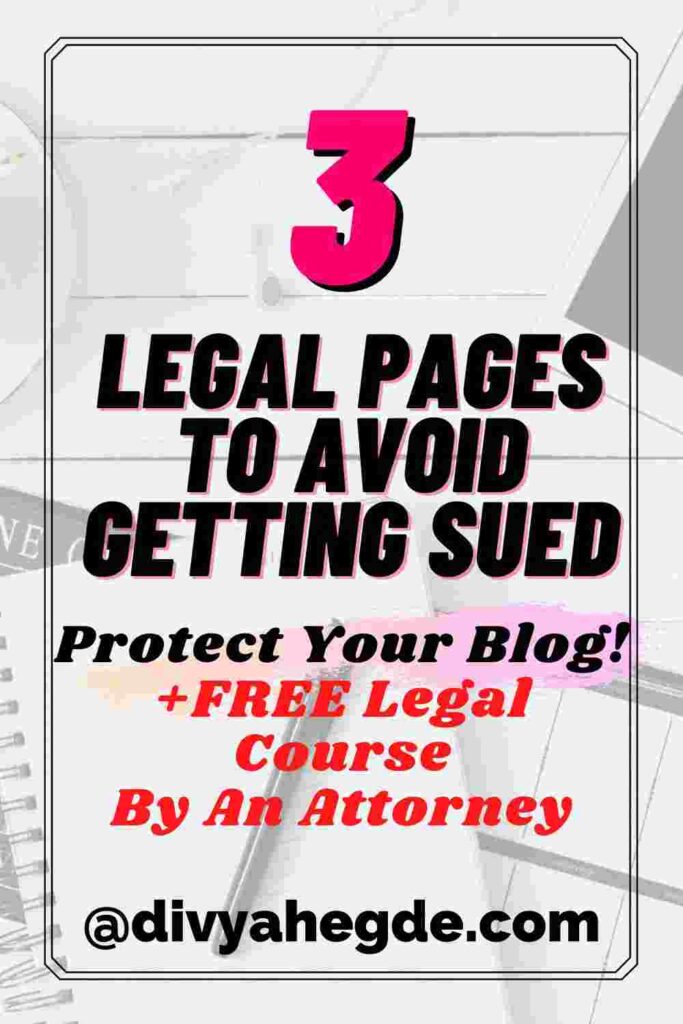
If you want to run ads, write sponsored posts, do affiliate marketing or sell products, you need to have your legal pages in place.
All the legal documents needed for a website, where to find legal pages templates and FREE legal courses to educate yourself about how and why to make your website legal are mentioned below.
FTC: I am in no way claiming that I’m a professional lawyer. These are the most recommended pages by lawyers. This post is for educational purposes only. The aim here is to make new bloggers aware of these requirements. This is not a sponsored post.
This site contains affiliate links to products. We may receive a small commission for purchases made through these links. This will not cost you extra money. For more, check out our Disclaimer.
Important Legal Pages For Websites
1.1 Why Make Your Website Legal?
Legal pages are a requirement by many laws and regulations.
They are a means of assuring your audience that their information is not being sold or misused.
Legal pages make you look professional and lets others know that you care about your visitors’ privacy.
This is a way to protect your content from being misused or plagiarized. You can avoid legal complaints from users for privacy concerns.
1.2 Privacy Policy
The ultimate most important legal page most newbies forget about is the Privacy Policy. Also, it a legal requirement by law.
A privacy policy tells users how their information is collected and where it is being used.
There will be visitors from all over the world. You won’t be able to filter out people visiting your site from certain countries that have strict privacy policy rules.
If you already didn’t know, European countries have some privacy policy laws that protect their citizens’ data called GDPR.
The General Data Protection Regulation (EU) 2016/679 (GDPR) is a regulation in EU law on data protection and privacy in the European Union (EU) and the European Economic Area (EEA). [Source: Wikipedia]
CCPA or California Consumer Privacy Act is issued to ensure and enhance privacy rights and protection for consumers from California state.
Apart from this, you are expected to add a Children’s Online Privacy Protection Act statement if you engage with kids aged 13 or below.
How to write a privacy policy? Well, there are a few options. You can write your own privacy policy but if you’re not a lawyer, it’s not the smartest thing to do.
Other options are hiring a lawyer, using privacy policy templates drafted by a lawyer or using free privacy policy templates.
If you carefully weigh these options, opting for legal pages drafted by a lawyer who is also a blogger would be smart.
Check out this Privacy Policy template done for you and drafted by Lucrezia, a blogger (from Blogging for New Bloggers) and a professional lawyer.
She also has a course on this if you’d like to fully understand why and how to legally protect your blog before getting sued for violations! Learn more about this free legal course.
1.3 Terms and Conditions
What other legal pages a website should have? The next step to fully protecting your blog/website is by adding a Terms and Conditions page.
Terms and Conditions page acts as an agreement between you (the owner of the website or app) and the users of your site that is legal.
You can lay down the rules of your website and how people can use it. Visitors should get an idea of what to expect from your blog by reading this page,
This is the page where you can specify where the disputes can be resolved (if any)
Terms and Conditions is a legal page that sets the rights and responsibilities of the users of your website.
Get Lucrezia’s Terms and Conditions template for your blog.
Loving what you’ve read so far? Consider subscribing to get instant updates on all the latest blogging updates+ tips to get better at it. Oh, I also send a weekly newsletter and freebies!
1.4 Disclaimer
Disclaim means to deny the responsibilities. A Disclaimer page assures that all your content and the information provided on your website is for informational purposes only.
No guarantees are made regarding the accuracy and reliability of the content on our site. Disclaimers can be a common form of defense against any legal claims.
A disclaimer page is important if you write about finance, health, legal topics.
Pro tip: All of these legal pages should be easy to access and anyone who visits your should be able to navigate to respective pages quickly.
These legal pages should be accessible from any and every blog post on your website. Preferably header and footer.
Access To Legal Pages Templates
If you don’t know to write these, there are many websites that generate samples for free.
But most of the time, we are not sure who is generating these templates and how qualified they are.
So to be on a safer side and to avoid any legal issues, it is recommended you get these legal pages from a professional law practitioner.
Read this blog post by Lucrezia on critical legal pages you must have.
If you are interested in learning more about GDPR and CCPA, I highly recommend you check out her Legally Blogs course.
I have taken this course too and found it very useful as a new blogger. This course has both FREE and Premium options.
It is very important as a blogger who has affiliate links, ads or even an email list to know about the GDPR and CCPA and Privacy Policy.
This legal bundle consists of GDPR+ FTC+ CCPA complaint legal pages.
These templates are great if you’re a blogger based in US, UK, EU, Canada, Australia, South Africa, India, New Zealand, etc. according to Lucrezia.
To summarize, here are the courses and templates you can get!
Legal courses for you:
Other Must Have Legal Pages
1. About Us
This is a very important page to be added to your site. Having an about us page ensures your website is not spam, fake or a bot.
Remember that search engines want their users to have the best experience. I know I keep saying this, but some people just don’t get it!
This page should contain information about the site and its owner. Also, about services or offers you provide.
Don’t go on and on about your life history but make sure you keep it a little interesting! Never share personal information anywhere on your site.
2. Contact Us
The next page that is an absolute must is a Contact Us page. In this page you need to include a contact form and/or a subscription form which asks the visitors to take action.
By ‘take action’ I mean, filling in the details and subscribing to your email list or any other service you are providing.
As this is an important page, you should include your email through which people could contact you.
This will also help you connect with your audience.
Don’t use a personal email or any email address that is unprofessional (definitely not your highschool email! )
Please do your research after reading this and ensure you have legal pages setup. This could help you get accepted into ad networks like Google AdSense, etc.
Related: Best Free Blogging Resources Every Blogger Needs.
If you liked this post and found it helpful in any way, then be sure to comment down below.
Don’t forget to subscribe to join the list! I send out a weekly newsletter with all the latest blogging updates you need to know! I would really appreciate it!

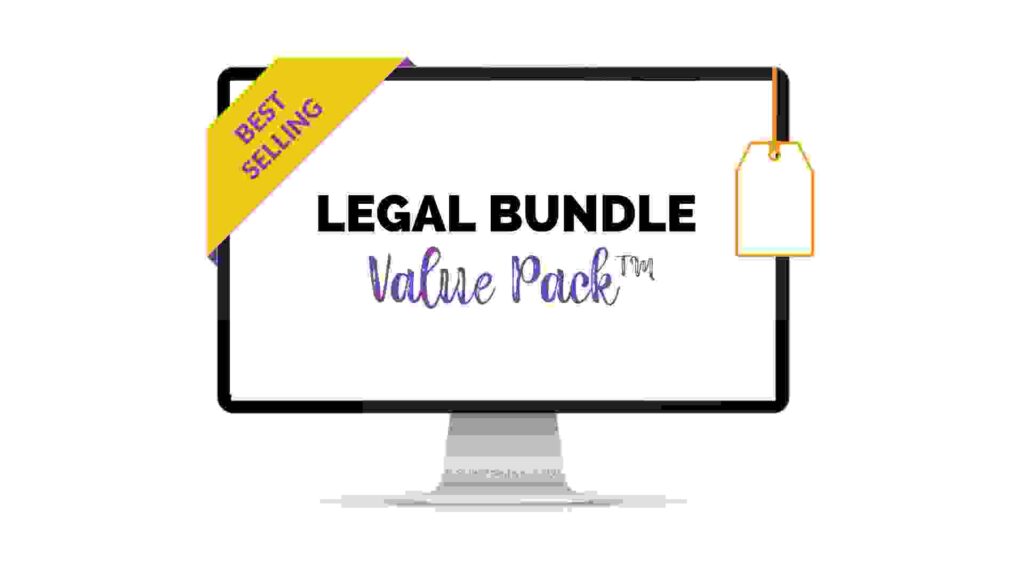
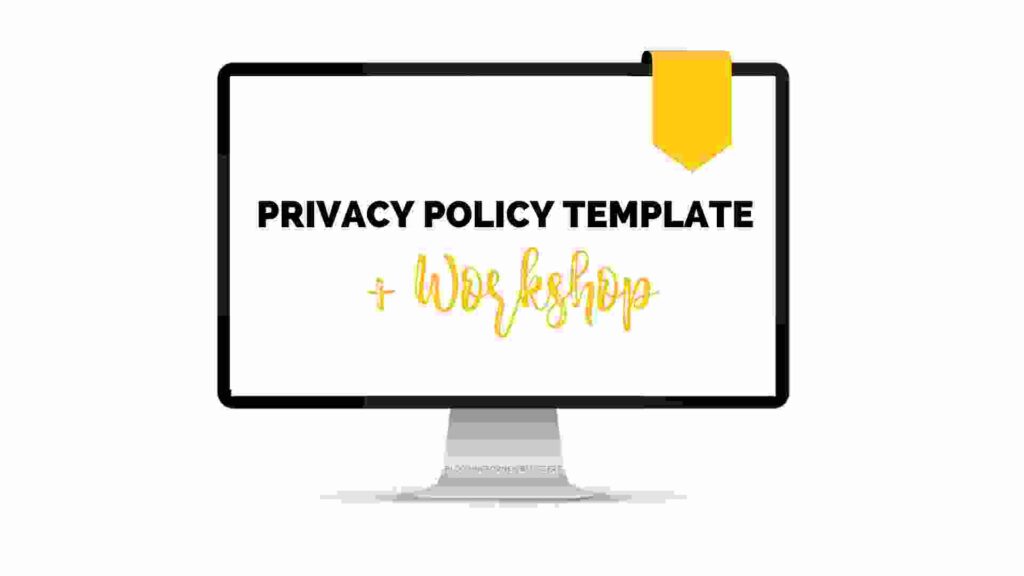
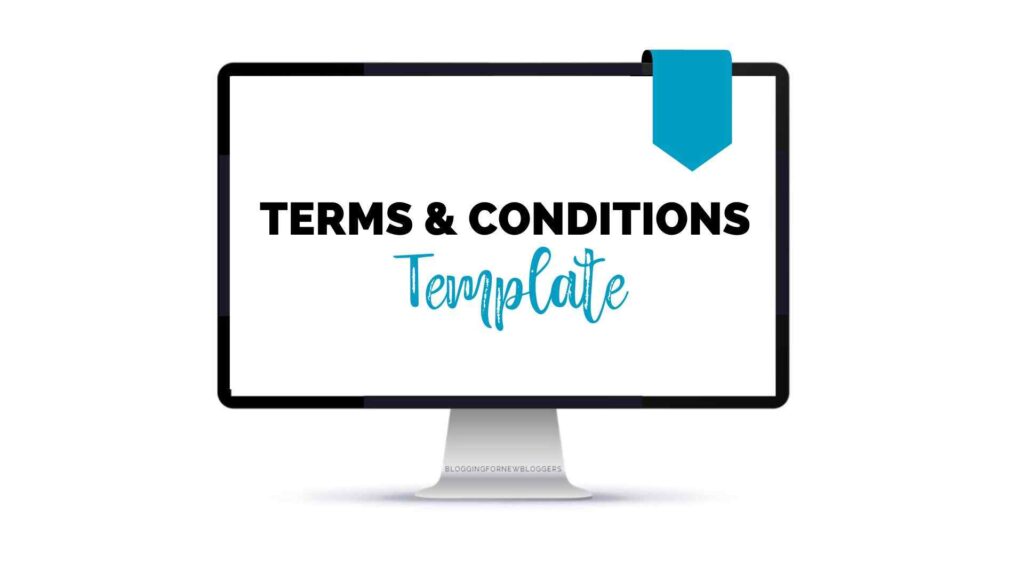
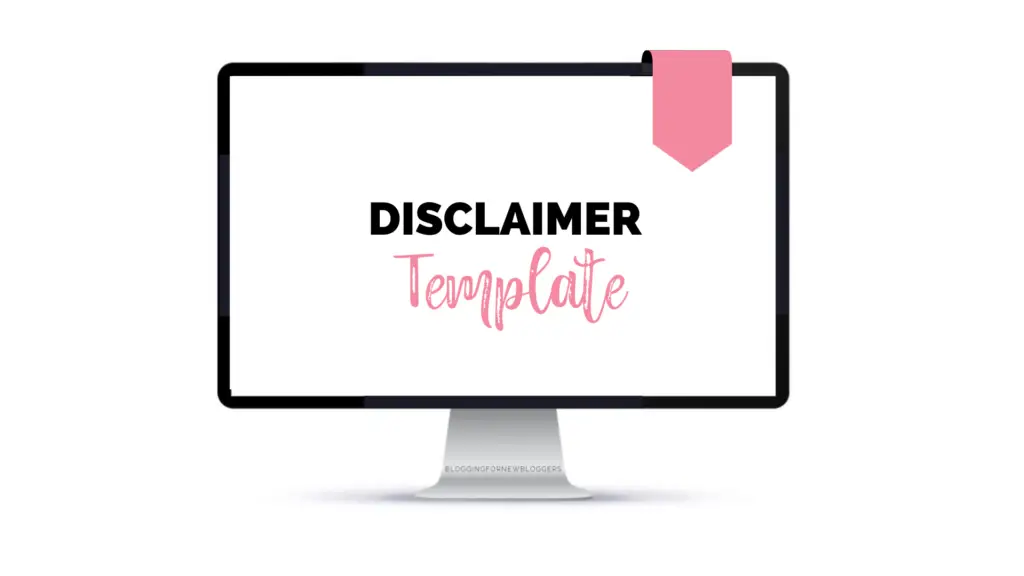
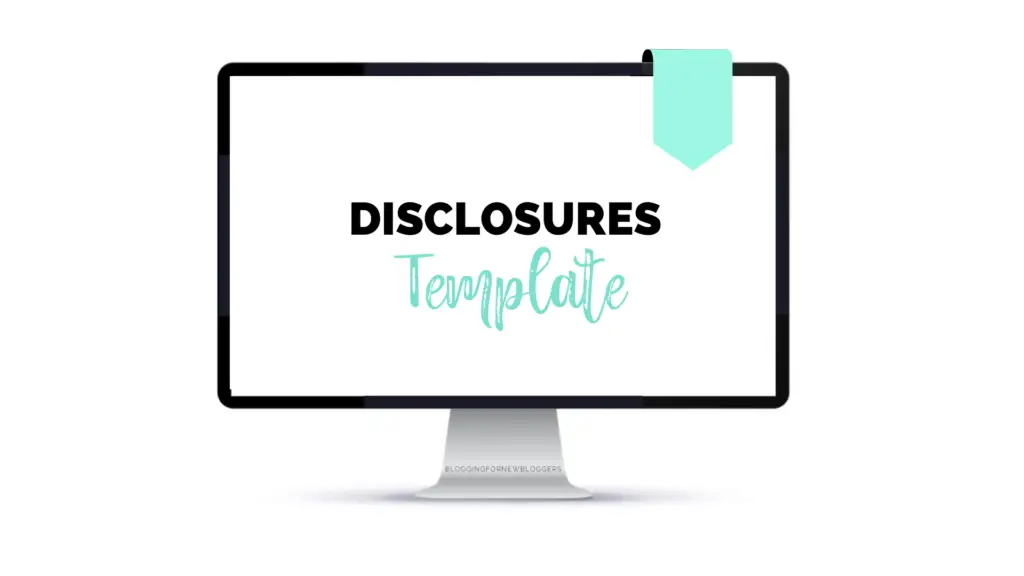
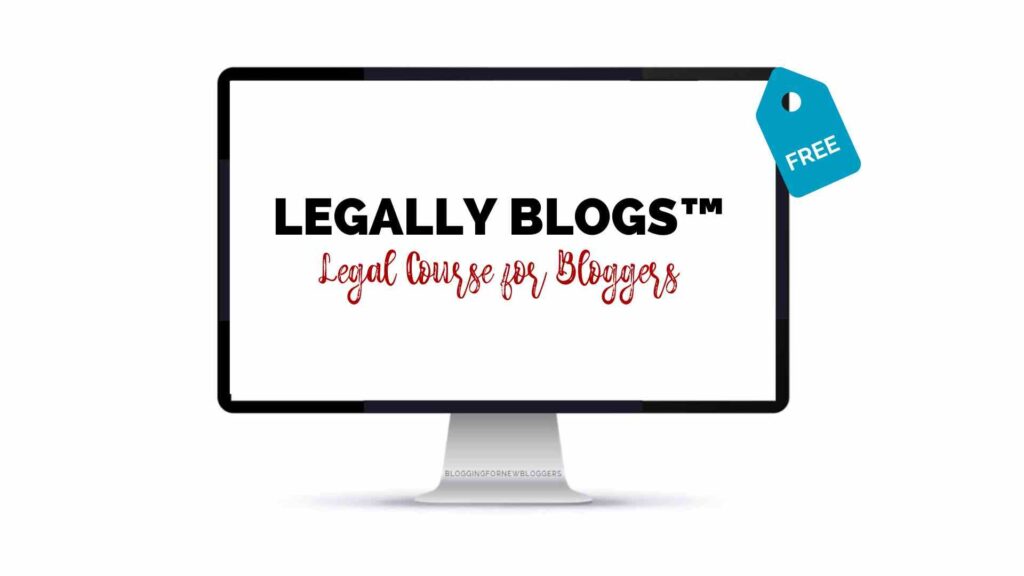
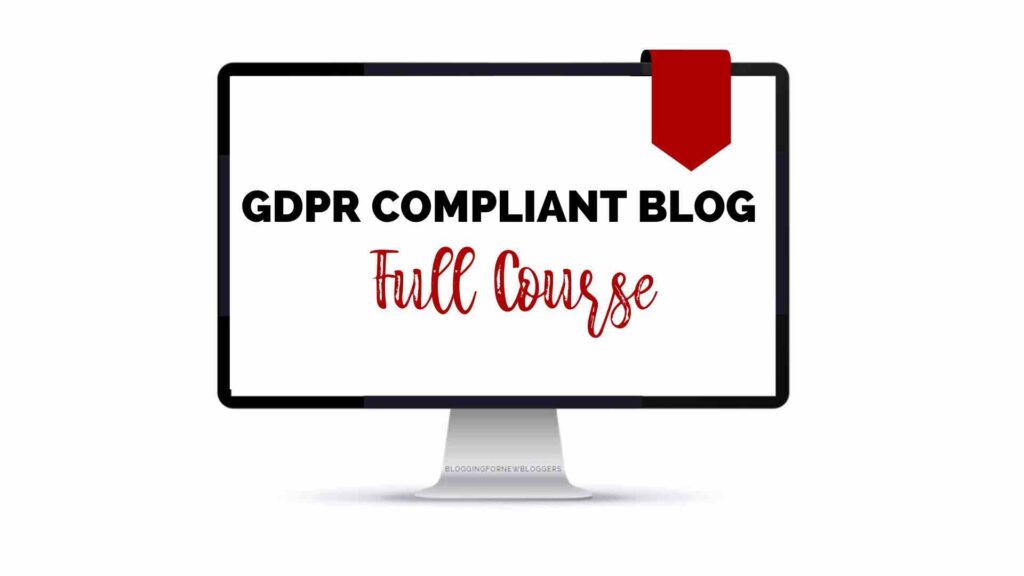
Thanks for the tips!!
This was INCREDIBLY helpful. Thank you!
Very Helpful article. Thank you for Sharing.
Thanks for the helpful tips. I’ve been to your blog a couple of times and love your content~
Thanks a lot Tammy! I’m so happy you like it.
this is surely a helpful post for beginner bloggerrs.
most new bloggers doesn’t consider legal pages because they are not sure where to get quality and trust worthy ones.
she is a well respected blogger, and I see more and more bloggers are using her legal templates and recommending them to their audience.
thanks for sharing.
Thank you Hari
So informative and helpful. I really needed it now that am trying to apply for google Adsense. Any tips on that will be highly appreciated.
Hi Abby! Glad you found this helpful. I actually have a post related to google adsense, how to apply+ get accepted fast. Please check that out. I’m sure it’ll help!
Thank you for this! I am about to sell a product on my blog and reading this was helpful.
So happy to know you found it helpful, Lauren. Good luck with your product!